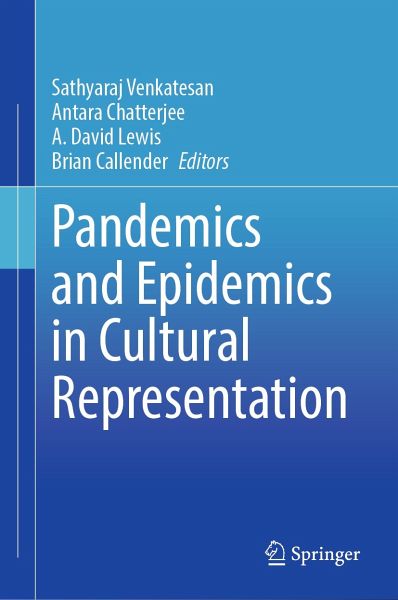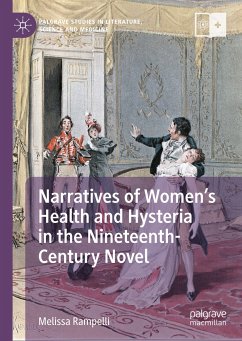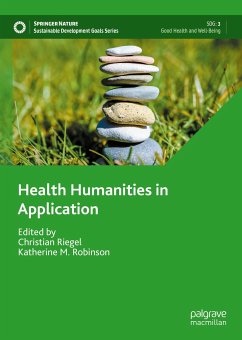
Pandemics and Epidemics in Cultural Representation (eBook, PDF)
Versandkostenfrei!
Sofort per Download lieferbar
104,95 €
inkl. MwSt.
Weitere Ausgaben:

PAYBACK Punkte
52 °P sammeln!
This edited book analyses how artists, authors, and cultural practitioners have responded to and represented episodes of epidemics/pandemics through history. Covering a broad range of notable epidemics/pandemics (black death, cholera, Influenza, AIDS, Ebola, COVID-19), the chapters examine the cultural representations of epidemics and pandemics in different contexts, periods, languages, media, and genres. Interdisciplinary in nature and drawing on perspectives from medicine, literature, medical anthropology, philosophy of medicine, and cultural theory, the book investigates and emphasizes the ...
This edited book analyses how artists, authors, and cultural practitioners have responded to and represented episodes of epidemics/pandemics through history. Covering a broad range of notable epidemics/pandemics (black death, cholera, Influenza, AIDS, Ebola, COVID-19), the chapters examine the cultural representations of epidemics and pandemics in different contexts, periods, languages, media, and genres. Interdisciplinary in nature and drawing on perspectives from medicine, literature, medical anthropology, philosophy of medicine, and cultural theory, the book investigates and emphasizes the urgent need to reflect on past catastrophes caused by such outbreaks. By delving into cultural history, it re-examines how societies and communities have responded in the past to species-threatening epidemics/pandemics. Sure to be of interest to lay readers as well as students and researchers, this work situates epidemics and pandemics outbreaks within the contexts of culture and narrative, and their complex and layered representation, commenting on intersections of contagion, culture, and community. It offers a cross-cultural, global, and comparative analysis of the trajectories, histories and responses to various epidemics/pandemics that impacted people worldwide.
Dieser Download kann aus rechtlichen Gründen nur mit Rechnungsadresse in A, B, BG, CY, CZ, D, DK, EW, E, FIN, F, GR, HR, H, IRL, I, LT, L, LR, M, NL, PL, P, R, S, SLO, SK ausgeliefert werden.












